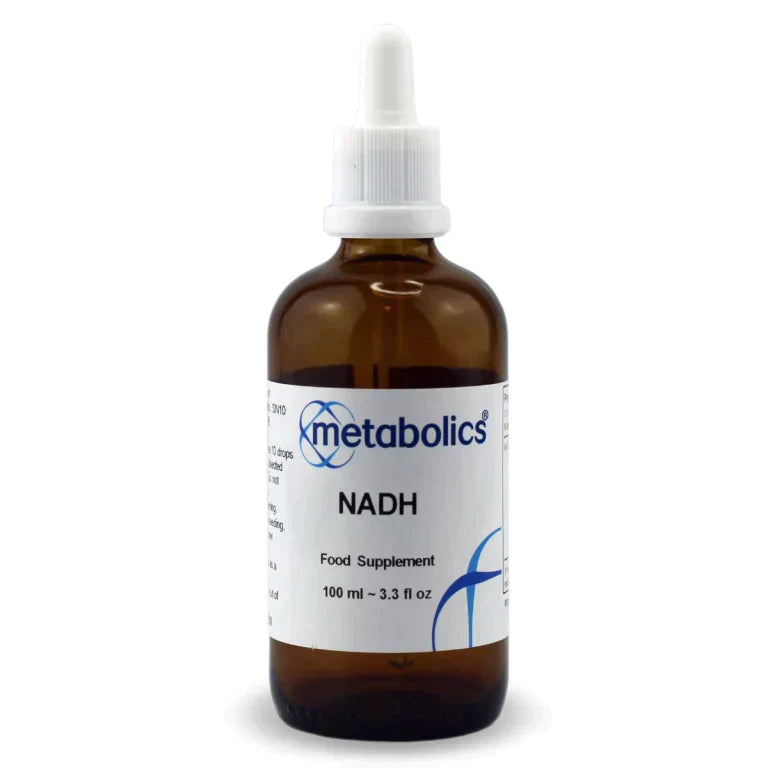NADH: Uses, Side Effects, Interactions, Reviews



Numerous potential health advantages of NADH include:
-Increasing energy levels: ATP, the body's primary energy source, is produced by the body with the help of NADH. It has been demonstrated that adding NADH to a diet can boost ATP production and energy levels.
-Improving cognitive function: It has been demonstrated that NADH enhances cognitive function in both Alzheimer's disease patients and healthy adults.
NADH has been demonstrated to strengthen the immune system and guard against infections.
NADH has anti-inflammatory qualities and can aid in reducing inflammation throughout the body.
NADH has been demonstrated to lower blood pressure and enhance heart health.
Although NADH is generally well-tolerated and safe, some people may experience side effects like nausea, headaches, and vertigo. Most of the time, these side effects are minor and disappear on their own.
A safe and effective dietary supplement, NADH has a long list of potential health advantages. Ask your doctor if taking NADH is right for you if you're thinking about it.
There are many different forms of NADH supplements, including tablets, capsules, powders, and liquids. Depending on the form being used, the patient's age, health, and other factors, the right dosage will vary.
To ensure you are taking the proper dosage of NADH, consult your doctor before beginning treatment. It's crucial to adhere to the directions on the labels of NADH supplements and not take more than the advised dosage.
The gut quickly absorbs NADH, which then swiftly enters the bloodstream. All of the body's tissues receive NADH once it is in the bloodstream. The liver breaks down NADH, which is then eliminated in the urine.
Certain drugs, including those prescribed to treat diabetes, high blood pressure, and Alzheimer's disease, may interact with NADH. If you are currently taking any medications, consult your physician before taking NADH.
Due to a lack of safety information, NADH is not suggested for women who are pregnant or nursing. Consult your doctor before taking NADH if you are pregnant or nursing.
The creation of ATP, which is a form of energy, depends heavily on NADH. In the process of cellular respiration, it accomplishes this by serving as an electron donor. Additionally, NADH controls a variety of cellular functions, such as detoxification, metabolism, and cell growth.
When taken as prescribed, NADH is generally secure. Supplemental NADH has no known long-term negative effects.
NADH has been investigated for a number of potential health advantages. More research is required to confirm NADH's effectiveness in people because the majority of the research on it has been conducted in test tubes or on animals.
Alzheimer's disease
The possibility of using NADH as an Alzheimer's disease treatment has been investigated. According to one study, NADH supplementation helped Alzheimer's patients' cognitive abilities. However, additional study is required to validate these results.
High blood pressure
Animal and human studies have both demonstrated the blood pressure-lowering effects of NADH. The impacts of NADH on blood pressure in humans require further study.
NADH has been investigated as a possible diabetes treatment. According to one study, type 2 diabetics with NADH supplementation had improved insulin sensitivity. However, additional study is required to validate these results.
A safe and effective dietary supplement, NADH has a long list of potential health advantages. Ask your doctor if taking NADH is right for you if you're thinking about it.
There are a few supplements worth taking into consideration if you're looking for a supplement with similar potential health benefits to NADH.
CoQ10 is an antioxidant that contributes to cellular health and energy production. CoQ10 has also been investigated for its potential to treat diabetes, high blood pressure, and Alzheimer's disease.
Acetyl-L-carnitine is an amino acid that aids in the synthesis of energy. In addition to being investigated for its potential to treat depression and age-related hearing loss, acetyl-L-carnitine has been shown to enhance cognitive function in people with Alzheimer's disease.
A water-soluble vitamin with an impact on metabolism and energy production is vitamin B3. It has been investigated whether vitamin B3 can treat depression, migraines, and high cholesterol.
A safe and effective dietary supplement, NADH has a long list of potential health advantages. Ask your doctor if taking NADH is right for you if you're thinking about it.








Plus get the inside scoop on our latest content and updates in our monthly newsletter.